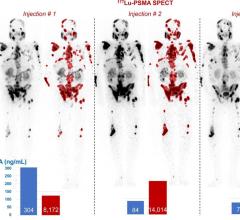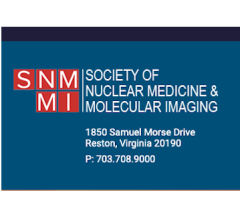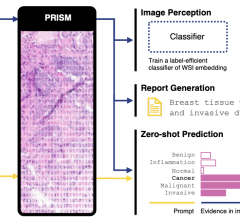January 5, 2012 - A group of thought leaders in Alzheimer's disease (AD) says the science is solid and the time has come for more widespread use of biomarkers in AD clinical trials to speed the identification of effective disease-modifying treatments for the incurable disorder. Recommendations by the Alzheimer's Disease Biomarker Expert Working Group (ADBEWG), convened by the not-for-profit Alliance for Aging Research (AAR) in cooperation with the U.S. Food and Drug Administration (FDA), are published this month in a special issue of Neurobiology of Aging.
Co-chaired by doctors John C. Morris of Washington University, St. Louis, and Dennis J. Selkoe of Harvard, ADBEWG systematically examined published research and determined the current status of biomarkers for AD, their potential for use in the design and conduct of clinical trials, and additional data that might be needed to fully establish their usefulness.
"The commissioned papers in this peer-reviewed journal provide a way forward to the FDA and to industry in the use of biomarkers in AD trials," said Morris, professor of neurology at the Washington University School of Medicine. "Our consensus is that certain available AD biomarkers have been sufficiently studied and validated in many populations and can be strongly recommended for use in clinical trials," he said.
Morris and Selkoe noted that the benefits of using AD biomarkers in clinical trials include a greater precision than cognitive assessment tools in measuring dementia progression, requiring fewer participants studied for less time and reducing the cost of trials. Biomarkers can allow for selective enrollment of "relatively rapid decliners," meaning fewer participants and less time to demonstrate treatment effect. They also said biomarkers enhance an investigator's confidence that patients are accurately diagnosed with AD.
"We view this white paper as representing a tipping point and a message to regulators that certain biomarkers already hold much promise to improve the process of testing new disease-modifying therapies for Alzheimer's," said Selkoe, professor at the Center for Neurologic Diseases at Brigham (CNDB) and Women's Hospital, Harvard and Harvard Medical School. "We recommend that investigators embrace the use of these biomarkers, as more frequent uptake can further hone their effectiveness."
The Working Group recommended that certain AD biomarkers – structural MRI, brain amyloid imaging and cerebrospinal fluid levels of amyloid beta-protein 42 (AB42) and tau – should be used for enrollment and as an outcome in AD clinical trials, along with current clinical assessments such as neuropsychological testing and the mini-mental state exam (MMSE) and assessment of activities of daily living (ADL). However, the ADBEWG also noted that AD biomarkers must undergo validation and reliability studies in non-research settings before their clinical utility in clinical practice can be determined.
Biomarkers for AD can be divided broadly into those that identify the aspects of the molecular pathology of AD and those that reflect the "downstream" consequences of that pathology. The neuropathological hallmarks that define AD are the amyloid plaques and neurofibrillary tangles found in the brains of AD patients upon autopsy. Amyloid plaques develop when the AB 42 protein accumulates in increasingly insoluble forms, and neurofibrillary tangles develop when tau proteins accumulate inside neurons and form insoluble filaments. Both AB 42 and tau can be measured in cerebrospinal fluid.
Certain imaging tests detect more "downstream" events that follow events initiated at the molecular level. For example, structural magnetic resonance imaging (MRI) can help detect neuronal loss and brain shrinkage caused by AD.
The AAR and a coalition of non-profit organizations it chairs known as Accelerate Cure/Treatments for Alzheimer's Disease (ACT-AD), is at the forefront of efforts to advance the development of transformational therapies for AD. There are currently no approved therapies that can prevent, cure or even substantially slow the progression of dementia caused by AD, whose costs topped $172 billion in 2010. The cost of AD is expected to rise to well over $1 trillion in 2050, even without adjusting for inflation, according to the Alzheimer's Association.
"The Alliance is committed to working closely with scientific leaders and the Food and Drug Administration to provide an expert perspective about how to use AD biomarkers most effectively for therapeutic discovery." said Daniel P. Perry, president and CEO of AAR.
For more information: www.elsevier.com/locate/neuaging


 January 27, 2026
January 27, 2026 









